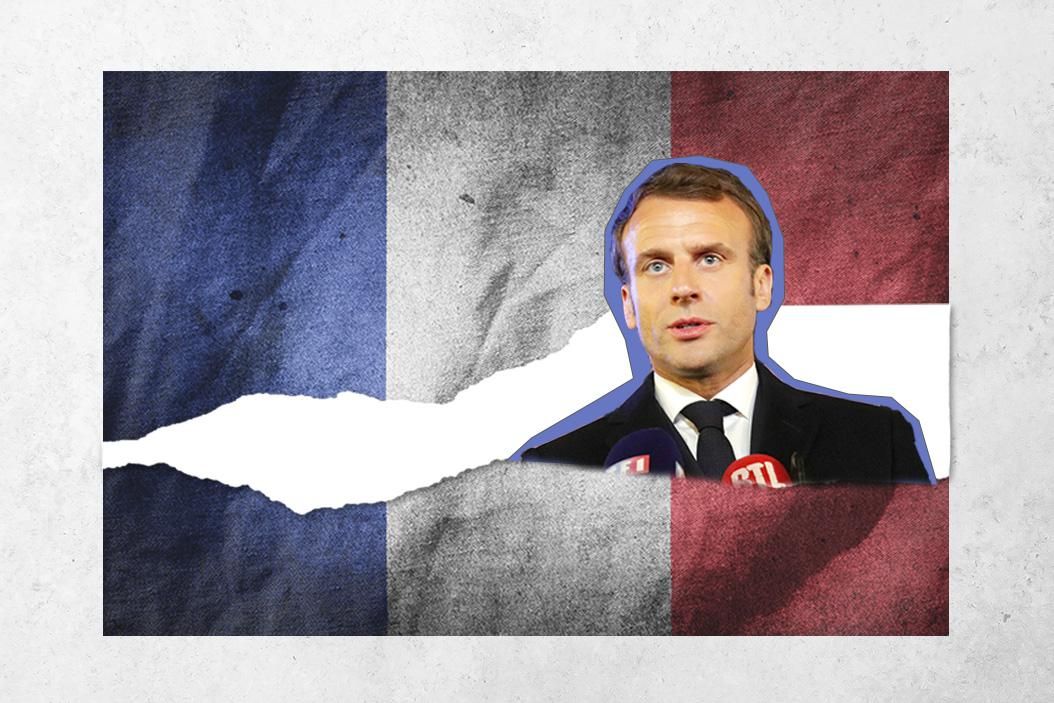December 10, 2020
France's anti-extremism law: On the 115th anniversary of France's famed laïcité laws that separate church and state, President Emmanuel Macron yesterday unveiled a controversial new bill meant to tackle religious extremism. While the bill doesn't single out Islam by name — that would be illegal under France's constitution — officials have made clear that its aim is to rein in Islamic extremism and organizations that support it. The proposed law comes as Macron is under tremendous pressure to respond to a recent spate of Islamic terror attacks in France, which has lost more of its people to terrorism than any other EU member state and seen thousands of its citizens join ISIS in recent years. The new law would scrutinize funding for religious institutions, restricts home-schooling, tightens rules on online hate speech, and even singles out punishment for doctors who issue "virginity certificates." It still needs to be approved in Parliament, where Macron (just barely) controls the lower house. Although close to 80 percent of French people believe that "Islam has declared war on France," debate over the law is expected to be fierce, with far-left and far-right groups saying it doesn't actually go far enough, while other critics say that the law needs to be part of broader efforts to better integrate French Muslims into society.
End to Qatar blockade? Saudi Arabia and Qatar this week made significant progress towards a deal to end Riyadh's three-year blockade of Qatar, imposed because of what the Saudis say is Qatar's support for terrorism. The latest diplomatic breakthrough was brokered by Kuwait and the US, which wants to end the standoff and give President Trump another foreign policy win in the Middle East before leaving office. The preliminary agreement hinges on Riyadh granting the Qataris access to Saudi airspace in exchange for the Qataris dropping their pending international lawsuits against the Saudis, which seek damages over the blockade. However, there's just one problem — Doha is also under blockade by Egypt, Bahrain and the UAE, and it's not clear that they are willing to give up just yet. There's also bad blood over Qatar's moves since 2017 to cozy up to Iran, mortal enemy of most of the Sunni Gulf powers and Egypt.
China's vaccine diplomacy: A Chinese coronavirus vaccine was approved for use outside China for the first time on Wednesday, when the UAE announced that the Sinopharm shot, which can be stored at room temperature, is 86 percent effective. It's a potential game-changer for many developing countries that lack cold-storage facilities for the Pfizer and Moderna vaccines, which are more effective than Sinopharm's but require deep freezing. The UAE's approval is likely the first among dozens of countries where China aims to push its own brand of vaccine diplomacy, which consists of sharing its drugs with poorer nations as a "global public good" instead of trying (like the US is doing) to inoculate all its own people first. On the one hand, China's vaccine push will be a lifesaver for developing countries that can't buy enough doses now, as Western countries hoard COVID-19 vaccines. And it may help restore trust in China after Beijing allegedly covered up the initial Wuhan outbreak. What will China ask for in return for this largesse? It's hard to say, but with this kind of leverage, Beijing will be in a good position — as long as its vaccines really work.From Your Site Articles
More For You
Prime Minister Narendra Modi, with President of the European Council António Luís Santos da Costa, and President of the European Commission Ursula von der Leyen, at Hyderabad House, in New Delhi, India, on Jan. 27, 2026.
DPR PMO/ANI Photo
On Tuesday, the world’s largest single market and the world’s most populous country cinched a deal that will slash or reduce tariffs on the vast majority of the products they trade.
Most Popular
Sponsored posts
Five forces that shaped 2025
What's Good Wednesdays
What’s Good Wednesdays™, January 28, 2026
Mexican President Claudia Sheinbaum Pardo stands alongside Canadian Prime Minister Mark Carney and US President Donald Trump during the 2026 World Cup draw at the John F. Kennedy Center for the Performing Arts in Washington, D.C., on December 5, 2025.
Deccio Serrano/NurPhoto
Canadian Prime Minister Mark Carney has repeatedly tussled with US President Donald Trump, whereas Mexican President Claudia Sheinbaum has tried to placate him. The discrepancy raises questions about the best way to approach the US leader.
Fighters of the Qassam Brigades, the armed wing of the Palestinian Islamist Hamas movement, attend a rally marking the 35th anniversary of the group's foundation in Gaza City on December 14, 2022.
Photo by Majdi Fathi/NurPhoto
10,000: The number of Hamas officers that the militant group reportedly wants to incorporate into the US-backed Palestinian administration for Gaza, in the form of a police force.
Walmart is investing $350 billion in US manufacturing. Over two-thirds of the products Walmart buys are made, grown, or assembled in America, like healthy dried fruit from The Ugly Co. The sustainable fruit is sourced directly from fourth-generation farmers in Farmersville, California, and delivered to your neighborhood Walmart shelves. Discover how Walmart's investment is supporting communities and fueling jobs across the nation.
© 2025 GZERO Media. All Rights Reserved | A Eurasia Group media company.
